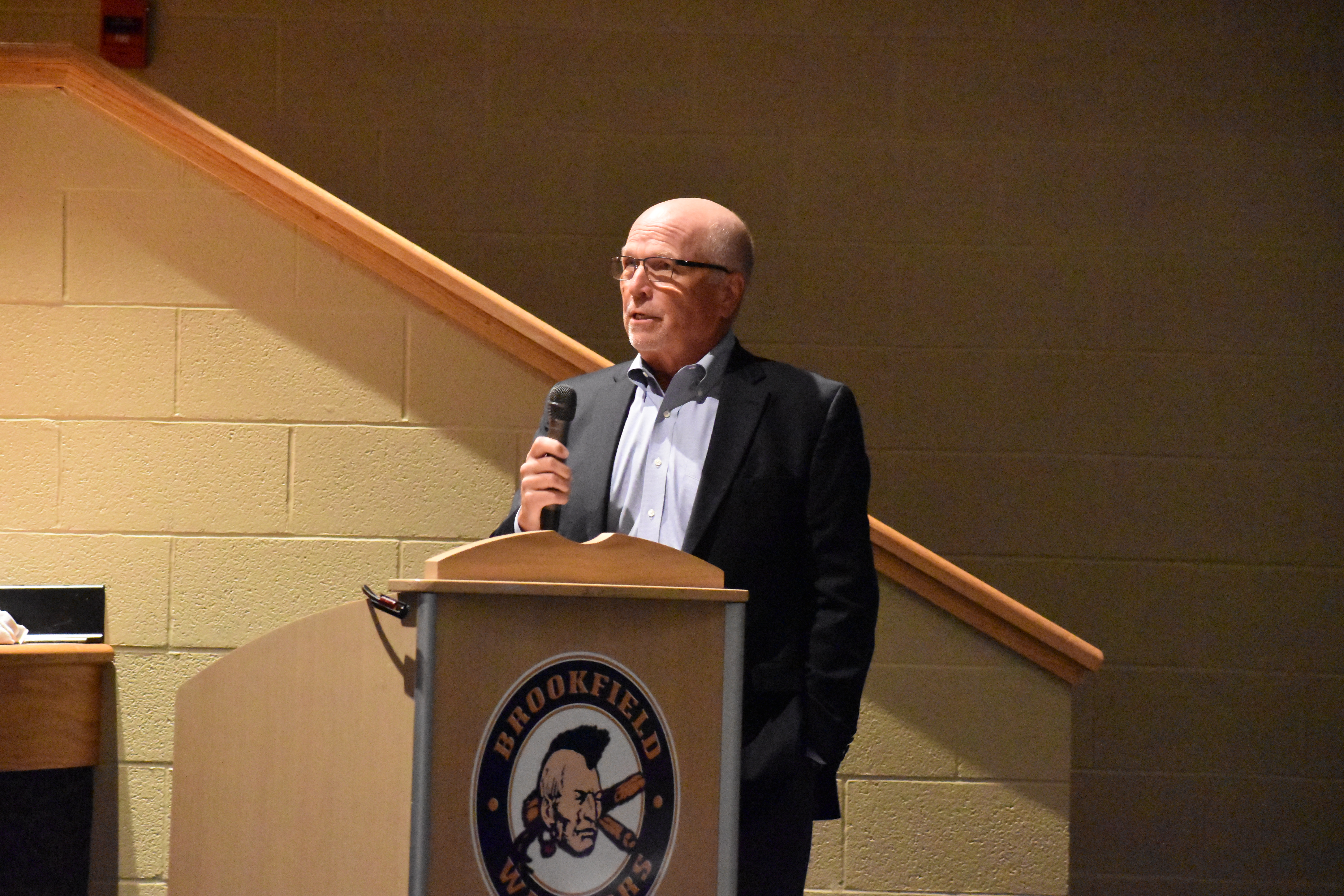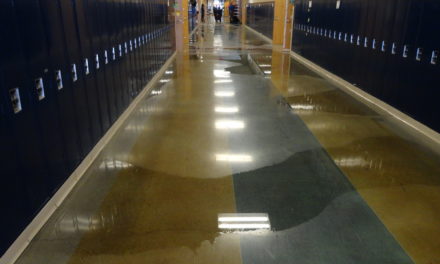Representatives of the Ohio Auditor of State have said Brookfield, Liberty and Mathews school districts could save a significant amount of money if they would jointly provide some of the services they now perform individually.
A presentation made Sept. 18 to the Brookfield Board of Education was a precursor to the completion of a report and its public release, when a public meeting for all three schools will have to be held, they said. (The auditor published a legal notice Nov. 9 stating the meeting will be held at 4 p.m. Nov. 20 at Brookfield schools, 614 Bedford Road.)
The study was requested by the districts, but paid for by the state.
The auditors concluded that the districts could save dollars by jointly providing regular and special education transportation services, special education services and administrative services.
The auditors also looked at food service and concluded it probably would not be feasible to combine that aspect of school services, but that contracting out food service could be an option.

Jim Penning
The greatest amount of money could be saved by combining regular bus service, potentially more than $500,000 spread over the three districts, by reducing the size of the combined fleets in terms of active and spare buses, and cutting a half-time mechanic position.
“Liberty has adequate space,” said Chief Auditor James Penning. “If you reduce the size of the fleet, most of the buses from the combined districts could be stored indoors and they have adequate maintenance facilities there.”
This option also would alleviate Brookfield from having to do anything about its aging and deteriorating bus garage on Grove Street.
School board member Tim Filipovich asked if sharing transportation services could mean some students would spend more time on the bus.
“Clearly, we didn’t have the capacity to run routing simulations,” Penning said. While the potential for longer bus rides is there, so is the possibility of shorter rides, especially if buses cross district boundary lines, he said.
“If you decide to move forward in any of these areas, there are things that you’re gonna have to work through,” Penning said.
Special education transportation is a major expense because the districts have to transport some students to classrooms operated by Trumbull County Educational Services Center in other parts of the county: more than $490,000 in 2018 to transport 55 students and more than $415,000 in 2019 to transport 45 students.
However, Liberty provides a model for saving money. In the past year, the district bought a handicapped-accessible bus and hired a driver and a monitor to transport special education students who attend one of the three classrooms operated by the county that are located in Liberty, reducing its cost for those students by $5,000 a student, Penning said.
“Based on your current enrollment and kids served by the county transportation, if you could model your service after the Liberty services that are being provided now, you can save close to another $250,000,” he said.
In terms of administration, Penning said there are districts throughout Ohio that are sharing superintendents or treasurers or lower-level supervisors and coordinators. The study places the dollar savings value on sharing a superintendent and treasurer among all three schools at $350,000.
 “There are districts that are doing it, and they are doing it successfully,” he said. “They continue to thrive, they continue to operate independently, making their own policies, doing their own hiring, doing their own evaluations.”
“There are districts that are doing it, and they are doing it successfully,” he said. “They continue to thrive, they continue to operate independently, making their own policies, doing their own hiring, doing their own evaluations.”
In looking at special education, the goal is not to save money, because federal rules prohibit a district from spending less as a whole or on a per-capita basis than it did the previous year, Penning said. “The goal was to help control costs going forward.”
The report recommends sharing a coordinator to monitor enrollment, class-size and disability-type trends, and creating shared classrooms for some types of disabilities with low enrollments.
While the board is not obligated to do anything recommended in the report, board members praised it and said its recommendations are worth considering.
“I think that the report has a lot of merit,” said board member George Economides. “I think that, for the future, you’re gonna have to do things like this, whether we like it or not. The point is, you take steps without having giant steps, so we don’t trip over ourselves.”








